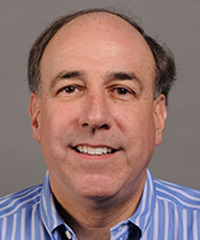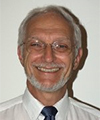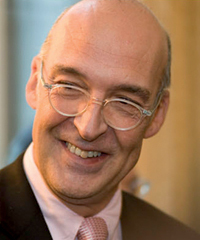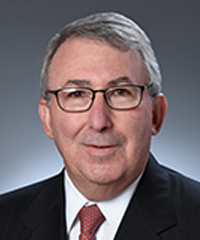Rheumatology
Rheumatoid Arthritis
Promising Areas for Future Research in Rheumatology
Overview
Although personalized therapy in rheumatoid arthritis (RA) is not yet a reality, panelists hope that data gathered over the last decade, together with the emergence of new powerful techniques, will lead to the identification of novel biomarkers that can optimize treatment selection in clinical practice and improve patient outcomes. There is also excitement about harnessing evolving knowledge of the immunopathogenesis of RA, molecular subgrouping, and potential advancements from biopsychosocial and lifestyle interventions.
Q: What are you most excited about in rheumatology? What issues are important to you? Where do you see the next advances coming from?
Stanley B. Cohen, MD
|
|
“We are advancing from preclinical to clinical stages of investigations, involving therapies and combinations that impact not only 1 arm of the immune system, but also other arms.”
We are advancing from preclinical to clinical stages of investigations, involving therapies and combinations that impact not only 1 arm of the immune system, but also other arms. And this has the potential to be very helpful or to potentially increase risk, but this is all still quite far off on the horizon. Nevertheless, at least at this point, there is still interest in developing new treatments for RA. Even though not much has come yet in the way of investigational attempts to stimulate regulatory Tcells, there is still a lot of interest in various immune mechanisms. But, again, going back to where we started this conversation, I think that if some of our friends in basic research can help us to elucidate effective treatment biomarkers, to begin to deliver on the promise of personalized medicine that I first began hearing about in the 1980s, that would be exciting for me, personally, as I close out my career.
Daniel E. Furst, MD
|
|
“I think that applying genetics to individual patient care is, to me a huge and exciting area.”
I fully agree. I think that applying genetics to individual patient care is, to me, a huge and exciting area. Yes, it has been frustrating, but I see it slowly moving forward. So, to me, once we actually can define how a patient is going to respond, that is going to be a major and important step forward.
Alan L. Epstein, MD
|
|
I think that as we learn about the genetics of our diseases and about their immunopathogeneses, it will allow us to target the diseases on a more individual basis. This will, hopefully, allow us to achieve better outcomes than we are already achieving. What we can do for our patients now is so dramatically different from what we could do for our patients 25 years ago. So, we have come a long, long way. But we’ve got a long way to go.
Leonard H. Calabrese, DO
|
|
“I think that the role of the scientific study of diet, exercise, stress reduction, and sleep hygiene is now just reaching scientific credibility, so I want to be a part of that.”
I am going to go rogue on this question. I am most excited about the horizon of scientific work being conducted on how personal behavior can affect wellness in people with RA. And this probably relates to quality-of-life measures. There are dimensions over and above the disease and the metrics of the illness, of which we have talked about extensively. I think that the role of the scientific study of diet, exercise, stress reduction, and sleep hygiene is now just reaching scientific credibility, so I want to be a part of that.
References
Firestein G, McInnes IB. Immunopathogenesis of rheumatoid arthritis. Immunity. 2017;46(2):183-196.
Furst DE, Emery P. Rheumatoid arthritis pathophysiology: update on emerging cytokine and cytokine-associated cell targets. Rheumatology (Oxford). 2014;53(9):1560-1569.
Lemmey AB, Wilkinson TJ, Clayton RJ, et al. Tight control of disease activity fails to improve body composition or physical function in rheumatoid arthritis patients. Rheumatology (Oxford). 2016;55(10):1736-1745.
Romão VC, Vital EM, Fonseca JE, Buch MH. Right drug, right patient, right time: aspiration or future promise for biologics in rheumatoid arthritis? Arthritis Res Ther. 2017;19(1):239.
Salomon S, Guignant C, Morel P, et al. Th17 and CD24hiCD27+ regulatory B lymphocytes are biomarkers of response to biologics in rheumatoid arthritis. Arthritis Res Ther. 2017;19(1):33.
Szady P, Bączyk G, Kozłowska K. Fatigue and sleep quality in rheumatoid arthritis patients during hospital admission. Reumatologia. 2017;55(2):65-72.














